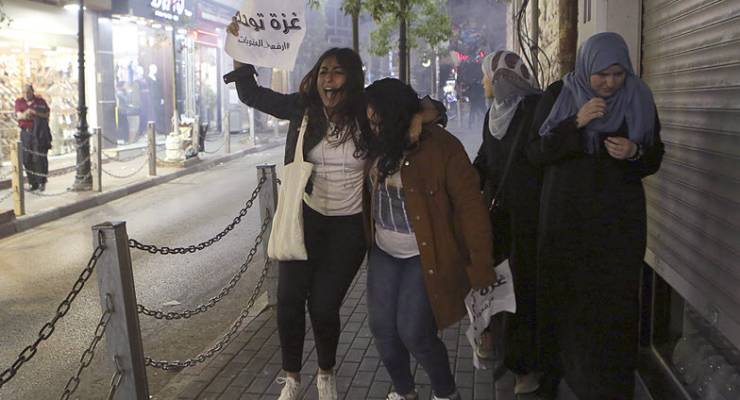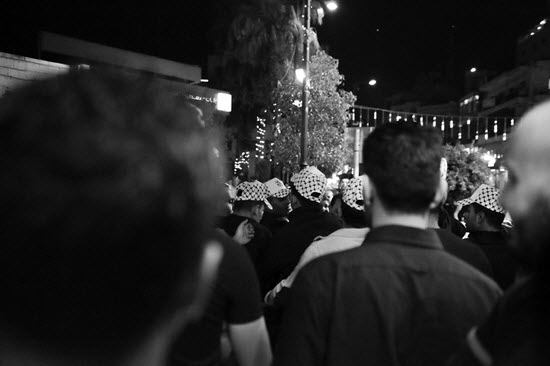
Israel has consistently demonstrated that it will stop at nothing to maintain its 50-year military colonisation of the Occupied Palestinian Territories. Its partner in crime: the Palestinian Authority.
The Palestinian Authority (PA) was established under the 1994 Oslo Accords as an interim body responsible for governing 18% of land in the West Bank. Contrary to the unfulfilled promise of a “temporary” five-year period before the establishment of a Palestinian state, 24 years later the PA is desperately clinging to retain the minimal power they hold. This is now coming at the expense of the Palestinian people.
In the wake of rising unpopularity, it has been said that PA President Mahmoud Abbas is becoming ever more authoritarian as he clings to power in his late years, desperately attempting to steady the decline of the Palestinian National Movement and quell internal differences in his political party, Fataḥ. However, we may have recently been witness to the most explicit example of the PA’s repressive clampdown on dissent.
Violence in Ramallah
Last month, hundreds gathered in the Occupied West Bank city of Ramallah to voice dissent for the PA’s complicity with compounding the suffering of Palestinians in the siege of Gaza. The protesters mobilised against PA sanctions which included slashing the salaries of more than 60,000 civil servants and cutting off payments for electricity without warning in the Gaza Strip.
You could taste tear gas in the air, upon entering the centre of the city. The streets were chaotic as protestors fled from sound grenades being fired directly into the crowd. A Palestinian man warned me not speak to anybody or take photos. He said the streets were swarming with undercover Mukhabarat (intelligence) targeting anybody suspected of supporting the anti-government protest. While the targeting of Palestinian activists is commonplace, international journalists have also alleged they were beaten by PA forces. The most violent of the forces were the paid thugs (supporters of Fateh) in civilian clothing who beat dissenting Palestinians. The sexual assault of several women in the crowd has also been reported.
The PA’s riot and police forces were seemingly complicit in these actions, forming barricades along the road so the institutionalised thugs could successfully drag protesters without being obstructed. I witnessed members of the Mukhabarat single out a Palestinian woman holding a sign that read “Gaza unites us”. She was surrounded by security forces in a matter of minutes, and they proceeded to drag her 200m down the street by her hair.
With a reported 69 people arrested within two hours, the attack showed that PA are actively ensuring Israel’s security by quashing efforts of a genuine populous uprising.
Grasping for control
The PA’s security sector employs half of all civil servants and accounts for $1 billion of the PA budget; this consumes more than the education, health and agriculture sectors combined. The sector is also the recipient of considerable international aid: the United States and the European Union consistently pour millions of dollars into training and arming the PA security forces. Australia has this morning withdrawn direct aid over concerns funds were benefiting those convicted of politically motivated violence.
The protest at Ramallah showed the skewed security budget in action; five different factions of the PA’s security apparatus were present. Perhaps the most compelling metaphor was the hats of paid security forces loyal to the Fatah party, championing the black and white keffiyeh print — the iconic scarf that symbolises a struggle for liberation. As they violently beat protesters, it couldn’t be more clear that the PA’s function is not to unite Palestine; it is to divide and disempower the population to ensure they are unable to resist colonial subjugation.

The results of a poll conducted in March by the Palestinian Center for Policy and Survey Research (PSR) paint a picture of pessimism and despair. An overwhelming majority of the Palestinian population have no trust in leadership; 68% demand Abbas’ resignation, less than a quarter view Palestinian democracy as good, and two-thirds believe they cannot criticise the PA without fear. Surely the recent events in Ramallah will only serve to increase the already dire situation.
The intimidation of free speech I was witness to is simply the most recent example of the fact that the PA is sub-contracted to favour the occupier. It serves as an instrument of control and pacification, ensuring the Palestinian population are unable to mobilise an effective resistance movement that demands an end to the 70-year-long denial of their human rights.







ME politics utterly corrupt. Sigh…
In other news, the sun also rises.
This explains why America blocked aid and refused to accept the democratically elected Hamas government. If you want democracy they beat you until you are too weak to have a voice. Many think this sort of thing is peculiar to the Middle East, they are wrong.
When I arrived in Palestine to draft a report for the UN in 2008, one of my first meetings with the PA in Ramallah was with the head of one of its central agencies. Over coffee in his office, he told me that my task was straightforward: just write about the misery of the people in Gaza under Hamas, he said. The parallel message was that all was as well as could be for Palestinians in the West Bank and East Jerusalem under the PA. This was shortly prior to Israel’s utterly brutal assault on Gaza in late 2008/early 2009 (Operation Cast Lead), for which Israel evaded any punitive response.
In my view, Abbas and Fatah have been more compliant to Israeli manipulation in order to retain quasi-power since Palestinians voted for the ‘wrong’ party in 2006. Swiss academic research soon afterwards revealed primary reasons for this: Hamas was stronger at mobilizing women to vote, endorsing women as candidates and adopting strong family welfare policies, as well as widespread reaction to perceived Fatah corruption. (I can already hear keyboards writing those better publicized tropes! I am not defending Hamas!) Palestinian women voted in unprecedented numbers and the USA/West joined Israel and Fatah in repudiating the results.
I am inclined to Luna Alqamar’s view. It is difficult to see that the current PA views a two-state solution (to the extent that some think it still a viable option under protracted and unconstrained Israeli expansion within occupied lands) as compatible with its hold on ‘power’.
Robert Johnson
I am disappointed to read this somewhat biased report from the West Bank. The rioters you spoke about were there supporting the Hamas backed terrorist initatives to destroy the separation fence, infiltrate into Israel and kill and maim Israeli civilians. The reporter clearly has not visited Israel and definitely not recently and hence his bias. If he had any knowledge of history in that region for the past century then we might attribute some objective journalistic professionalism to his reporting. He has just regurgitated standard anti Israel copy.